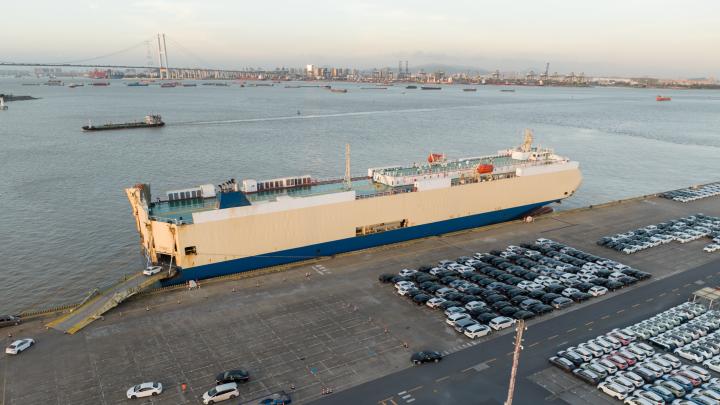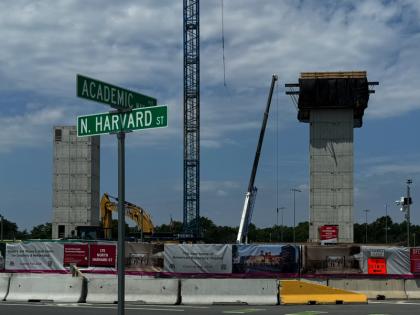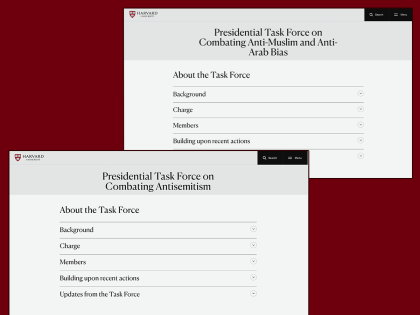China’s economy has grown more than five-fold during the last 20 years, adjusted for inflation—making it the second-largest economy globally, behind only the United States. Based on purchasing power parity (not per capita output), many believe China’s economy to have outpaced the U.S. economy. This rapid growth has lifted hundreds of millions of people out of extreme poverty.
Concurrently, China has significantly expanded its global exports, including into U.S. markets. In response, the White House has imposed substantial tariffs on Chinese goods.
The outcome of the 2024 U.S. presidential election will shape relations between the two countries for the next four years. Trade stands as one of the defining platform topics, with bipartisan support for reducing the United States trade deficit by lessening dependence on imports of critical Chinese goods.
William C. Kirby, T.M. Chang professor of China studies at Harvard and Spangler Family professor of business administration at Harvard Business School, is an astute observer of contemporary China. In 2020, he spoke with Harvard Magazine about China’s aspirations for global leadership in the twenty-first century.
In this new interview (with auto-generated closed captioning by Youtube), Kirby discusses the evolving relationship between China and the United States, focusing particularly on the impact and broader economic implications of tariffs on the clean technology sector.
China has emerged as a leader in manufacturing solar panels, battery materials, and electric vehicles (EVs). The country has invested more than $230 billion to develop its EV industry, threatening to saturate the global market. In May, the Biden administration placed a 100 percent tariff on EVs produced in China, plus an array of tariffs on other goods. Kirby warns that this strong protectionist measure, designed to defend the American automotive manufacturing industry, may have unintended consequences for consumers, other industries, and economic relations between the two countries.
As he argues, China’s dominance in clean energy technology, contrasted with the U.S. reluctance to foster collaborative partnerships that could enhance American global competitiveness, may pose a critical issue in the coming years. While both countries strive to serve domestic interests with protectionist policies, cooperation in advancing clean technology could benefit both nations. “The European Union recently placed more modest tariffs on Chinese electric vehicles in the belief, which is not unfounded, that these vehicles get a certain amount of local government support in the towns in which they are manufactured,” Kirby continued.
Drawing parallels to Japan-U.S. trade relations in the 1980s, Kirby notes how Japanese investment in U.S. manufacturing eased trade tensions, fostered job growth, and spurred technological advancements. In contrast, current U.S. tariffs on Chinese electric vehicles signal a shift toward isolationism, hindering potential partnerships that could bolster American innovation and market competitiveness. This historical perspective suggests a need to reconsider policies favoring unilateralism over cooperation, to promote sustainable economic growth for both countries.
Moreover, Kirby critiques the geopolitical implications of tariff-centric policies, suggesting they reflect broader anxieties about American global leadership with respect to technological supremacy. He argues that prioritizing competition over cooperation and guardrails risks exacerbating tensions and impeding progress in critical sectors like clean tech, where global collaboration is essential.
Indeed, common interests in combating climate change will “become important for the peaceful navigation of this relationship” between the U.S. and China, according to the Harvard Kennedy School’s Kirkpatrick professor of the practice of international affairs Meghan O’Sullivan. Of note, she was speaking to a forum organized by Harvard’s Salata Institute for Climate and Sustainability—a pertinent illustration of the intersections among environmental and security policy, and international relations.
Beyond economic concerns, Kirby touches on cultural and regulatory issues, notably U.S. security concerns surrounding Chinese platforms such as TikTok. “It tells you something about the low level to which the relationship between China and the United States has sunk,” Kirby notes, “that one of their biggest disputes is over a teenage video app that none of the leaders of these countries know how to use.” In the same vein, he criticizes regulatory measures targeting Chinese technologies, advocating for a balanced approach that safeguards national interests without stifling innovation or fostering discrimination.
“It’s a trade war that no one has won, and everyone has lost,” reflected Kirby. “But we are in this moment of such fear, and it’s really a fear of American decline more than a fear of China, in my view. But China becomes the lightning rod for our own insecurities. They can build high speed rail. They can build EVs in a dominant way. And so far, we have not been able to do so.”








